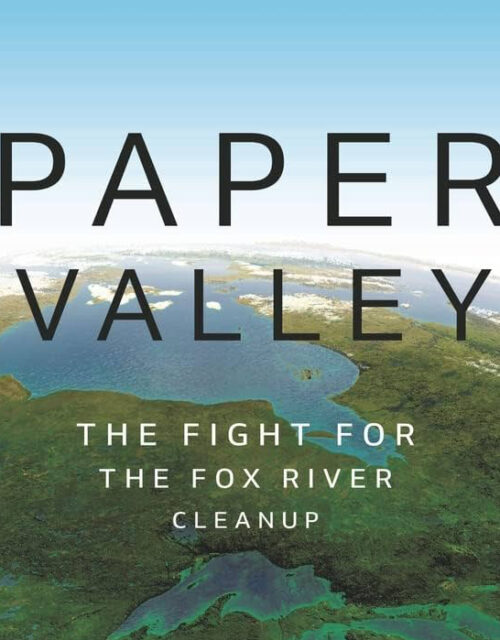40 Years of Issues
Forty years ago, National Academy of Sciences president Frank Press introduced the first copy of Issues in Science and Technology. He wrote that this magazine would be “dedicated to the broadening of enlightened opinion, reasoned discussion, and informed debate of national and international issues in which science and technology play a critical role.” The conversation Press envisioned continues even as technology has altered the forms of discussion and debate: our paper pages now extend onto the internet, social media, podcasts, and webinars. As we look ahead to the next 40 years of Issues, we will continue exploring new ways to broaden the conversation that Frank Press started. As with any good conversation, we don’t know where this project will lead, or what form the exploration will ultimately take—only that it will help us reflect on and advance the deeper purpose of science and technology policy: building a better world.
Editor's Journal
A 40-Year Conversation
Read MoreForty years ago, Issues in Science and Technology was dedicated to the “broadening of enlightened opinion, reasoned discussion, and informed debate of national and international issues in which science and technology play a critical role.”
Forum
Securing Semiconductor Supply Chains
Read MoreTime for an Engineering Biennale
Read MoreThe Strength of Weak Ties
Read MoreCentering Equity and Inclusion in STEM
Read MoreBeyond Stereotypes and Caricatures
Read MoreAgricultural Research for the Public Good
Read MoreFairer Returns on Public Investments
Read MoreTransforming Research Participation
Read More

Gallery
Environmental Apparitions
Perspectives
What a Coin From 1792 Reveals About America’s Scientific Enterprise
It’s thought that the very first coin ever produced by the United States Mint was made on a screw press in a Philadelphia basement in 1792, in the presence of George Washington… Read MoreFifty Years of Strategies for Equal Access to Graduate Fellowships
Read MoreThe National Science Foundation’s efforts to expand access to graduate STEM fellowships over the last fifty years offer useful lessons as college administrators seek to broaden access and participation in the wake of the Supreme Court’s ruling on affirmative action.
How to Build Engineers for Life
Read MoreForesight and planning can help universities intentionally shift the engineering curriculum (explicit and implicit) to encourage lifelong learning rather than thwart it.
New Voices on the Hill
Read MoreFirst-term members of the US House of Representatives reflect on the intersection of science and policy, and what drives their work.

Interview
“How Does This Country Do Big Things?”
Poetry
Mare Incognitum
Read More“Are we here because the mere dust of stars torched / In the throat of an equation?”

Gallery
Chaosmosis: Assigning Rhythm to the Turbulent
Real Numbers
An Age of Disentangled Research?
Read MoreEuropean research collaborations with China have not followed the same patterns as those between the United States and China; understanding the nuances of these relationships offers insights into the future of global science.
Features
Informing Decisionmakers in Real Time
Read MoreTo offer evidence to policymakers during the COVID-19 pandemic, the National Academies formed an unprecedented network of social science experts who fielded questions and offered advice.
When the Energy Transition Comes to Town
Read MoreThousands of American towns are losing jobs in fossil fuels. More sophisticated analytical tools could help communities marshal their resources for a better future.
Finding a Greener Future Beneath the Surface of Petroleum Science and Engineering
Read MoreFalling employment in the oil industry is shrinking university geoscience departments and closing petroleum engineering programs, but changes to the curriculum could make the field a leader in developing the workforce for the energy transition.
How Will Carbon Capture Transform Port Arthur, Texas?
Read MoreAdvances in engineering and financial incentives are putting a Gulf Coast city at the forefront of the energy transition. Can policies make good on promises to clean the environment and create jobs?
Inviting Millions Into the Era of Quantum Technologies
Read MoreNow that the potential of quantum technologies is becoming clearer, the United States must work quickly to build a workforce that reflects the diverse perspectives of our society.
Science Policy in the Spotlight
Read MoreWhat have the past 40 years taught us about the evolving relationship between science and society?
No, We Don’t Need Another ARPA
The Defense Advanced Research Projects Agency (DARPA) was created in 1958 in response to the Soviet Union’s launch of Sputnik. The agency matured in an era of incredible American scientific and technological… Read MoreBuilding a Culture of Risk-Taking
Read MoreThe acting director of the ARPA for energy provides insights on how a government agency can take big-but-smart bets.
How I Learned to Stop Worrying and Love Intelligible Failure
Read MoreWith the growth of “ARPA-everything,” it’s time to start testing predictions about what makes the model succeed. That means being able to understand when and why it doesn’t.
To Make Science and Engineering More Diverse, Make Research Socially Relevant
Read MoreScience and engineering disciplines sometimes struggle to connect research with social benefits and to retain diverse students. Solving one problem can solve the other.
What Ukraine Can Teach the World About Resilience and Civil Engineering
Read MoreBringing sociology into civil engineering helps explain how Ukraine’s social and physical systems work together to keep the lights on amid constant attacks.
Book Reviews

Your Money or Your Life
Victor Roy’s Capitalizing a Cure is not a beach read. Its 136 pages of text are a dense, thoroughly researched analysis of drug discovery and development, a deep dive into how the… Read More
An Epic Battle Against Polluters
Read MoreCharles N. Herrick reviews P. David Allen II and Susan Campbell’s book Paper Valley: The Fight for the Fox River Cleanup.
A Curious Collaboration
Dominique Ehrmann, A Curious Collaboration, 2022–2023, textiles and acrylic on cork with wood frame, 30.5 x 40.5 x 3.5 inches. Permanent collection of the National Academy of Sciences. This artwork documents… Read More
